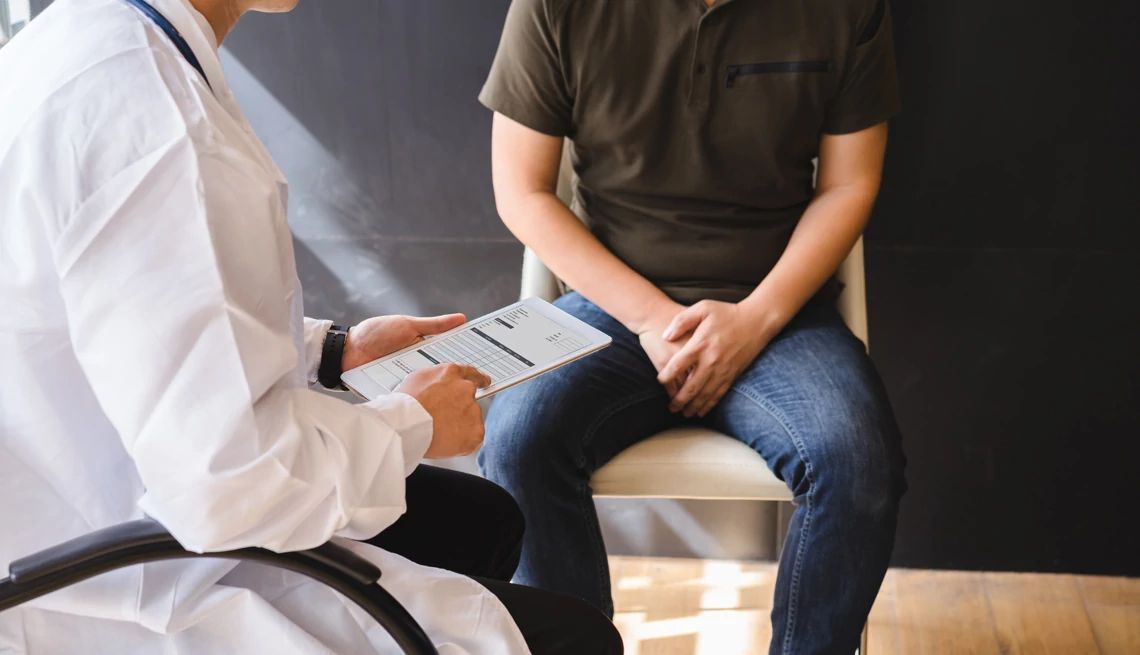AARP Hearing Center


Typically, you could find Dr. Chris Scuderi advising patients as a family physician in Jacksonville. But the exceptionally healthy 47-year-old who values exercise and clean eating was shocked to be on the receiving end of a terrifying diagnosis — bladder cancer.
It was 2020, and the former Navy lieutenant and medical officer told AARP Experience Counts he thought he had food poisoning. “It was strange — I have a strong faith and I prayed about it that morning and had a premonition that I needed to be scanned.” He had Stage 1 bladder cancer.
Scuderi is among the 11.4 percent of veterans diagnosed with cancer, a higher rate than the general population at 10 percent. The VA reports that the most frequently diagnosed cancers for veterans include prostate, lung, colorectal, melanoma and bladder.
Here are some pieces of advice based on what Scuderi learned from his journey:
Think positively
“People who win the lotto, a year later, might be very depressed,” Scuderi said. “But people who have cancer, a year later, if they survive, say it was the best thing that happened to them.”
Tips for surviving the “limbo zone”
“Limbo zone’s the worst place to be,” Scuderi said. “Once you know what you have you can deal with it, but when you first get diagnosed, that in-between time is very scary. You lose a lot of sleep and think of all the things you’re going to miss. It puts everything in perspective.”


Subscribe Here!
You can sign up here to AARP Experience Counts, a free email newsletter published twice a month.
He pushes patients to tell people what you’re going through, even before you have all the answers. “People want to keep it secret, but it’s helpful to talk to people you trust because it’s just so hard processing it. There are so many questions.” He added patients who isolate struggle more, awaiting news while your “life is hanging in the balance.”
Look at treatment like a trip or a deployment
It’s scary before you go, but once you are there you do what you have to do — that’s the mentality Scuderi used when he was deployed to support the civil war in Liberia in 2003. And also in cancer treatment.
“You do what you have to do to just get through it,” he said. “Having the military background will make a difference, knowing that it’s going to really consume your life for a while, it’s going to be inconvenient, you’re going to have to go to lots of appointments and you’ll have some side effects and challenges.” But, he said, like trip or deployment, it will come to an end.



































































More From AARP
The Unique Benefit of Adopting a Dog
Discover the many reasons you may want to consider a rescue dogWhy Florida is America's Greatest State
Florida's reputation may be tarnished, but it's still the home of sun, sea and sandHow I Made Friends With My High School Bully Decades Later
My experience shows the healing properties of time25 Great Ways to Build Healthy Habits
These tips can help create changes that positively impact your well-being for years to comeRecommended for You